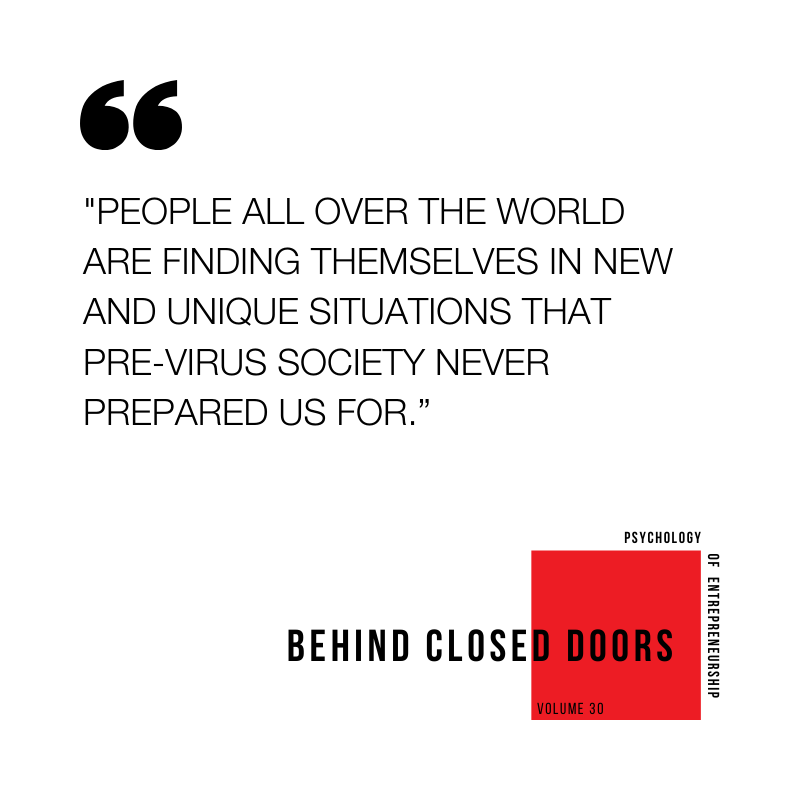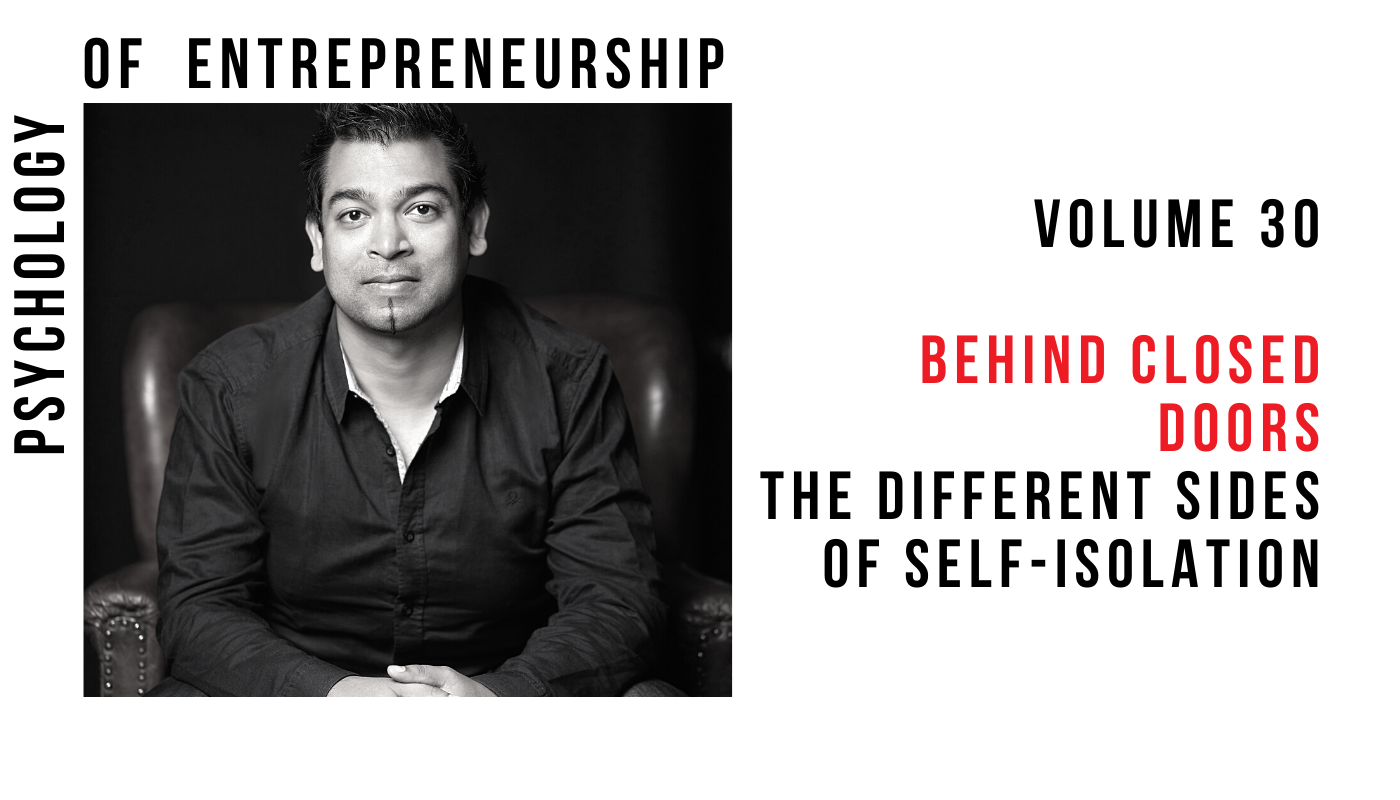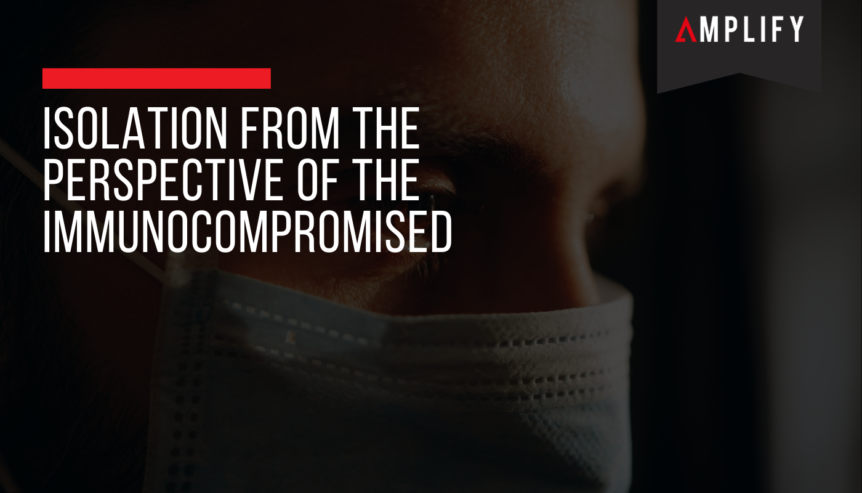The entire world is quarantined right now due to COVID19, and we’re all struggling with that in different ways. Some of us may be enjoying the slower-paced work from home schedule, or being able to homeschool the kids instead of getting them up unwillingly at the crack of dawn. Some of us are starting projects we’ve been putting off for months or finally reading that book we heard about months ago.
But some of us are just trying to deal with the anxiety and fear of the unknown by getting through each day hour by hour, or minute by minute.
We recently explored the complex topic of self-isolation due to the Coronavirus pandemic in a very special volume of The Psychology of Entrepreneurship. Ronsley guided us through some of the unique situations people are experiencing all over the world, situations that may look very different than our own.
The Fear of the Immunodeficient and Their Families
An immunocompromised person is defined as anyone that has a deficient immune system due to an inherited disorder, or an underactive immune system due to a health condition such as diabetes, asthma, cancer or chronic disease.
Although it’s impossible to know just how many people in the world are immunocompromised, we do know that 1 in 500 people in the United States lives with a Primary Immune Disorder or PI. And an estimated 10 million Americans are immunocompromised due to underlying health conditions. Imagine the fear you have of catching COVID19, and then imagine how much that fear would be multiplied if you didn’t have a functioning immune system to protect you.
Isolation Deja-Vu
In this volume of Psychology of Entrepreneurship, Ronsley gave some background of the son of an Amplify team member that was born with Severe Combined Immunodeficiency (SCID), one of the rarest diseases in the world.
Corrine’s son Jude was born without T Cells, a vital form of white blood cells that protect the body from infection. Without these white blood cells, Jude’s immune system was virtually non-existent, meaning even a common cold could kill him.
At three months old, Jude received ten days of chemotherapy, followed by a bone marrow transplant to save his life. The stem cells donated by a then-anonymous donor successfully engrafted into his blood. He began to slowly grow a new immune system. Although he does have a functioning immune system now, it’s at about ⅓ of that of a “normal” kid his age.
But before this incredible treatment, and for an entire year after, Jude and his entire family had to live in strict isolation to protect him. This meant Jude could not leave the house, unless it was for a clinic appointment with his team of doctors at Lurie’s Children Hospital in Chicago.
Even then, strict precautions were taken, including wearing face masks and avoiding contact with other people. No visitors were allowed inside their home. When Corrine or her husband, or older son Shane had to leave the house, they had to change clothes and wash thoroughly before being around Jude.
No trips to restaurants, parks or stores. And absolutely no playdates.
Sound familiar?
For families of immunocompromised people all over the world, isolation may not be anything new. In fact, this worldwide isolation due to the pandemic may be affecting their mental health in extreme ways. PTSD caused by daily reminders and triggers of the most vulnerable time of their lives may be something they’re silently struggling with. And this is on top of trying to keep their loved one, or themselves, safe from a virus that may be deadly to them.
So how do we help those most vulnerable, when we are limited in our daily activities ourselves?
Reach out. Call. Text. FaceTime. Send food. Order pizza. Pickup extra cleaning supplies and drop them off on their front step. And above all, keep yourself healthy and reduce the chance of spreading the virus by following social distance measures and wearing a mask when required.
If you or someone in your life is extra vulnerable right now, don’t be afraid to ask for help. We’re all in this together. And we need to offer protection to those among us who need it most.

The Psychology of Entrepreneurship
Explore the many different sides of self-isolation in this very special volume of The Psychology of Entrepreneurship, hosted by Ronsley Vaz.
Author: Ronsley Vaz
Ronsley is the founder & chief day dreamer at AMPLIFY. He is an author, speaker & serial entrepreneur.
He has a Masters’ degree in Software Engineering and an MBA in Psychology and Leadership. He is known as the creator of We Are Podcast – the first Podcasting Conference in the Southern Hemisphere, and the host of The Bond Appetit Podcast and Should I Start a Podcast. He has an audience of over 3 million in 133 countries.

